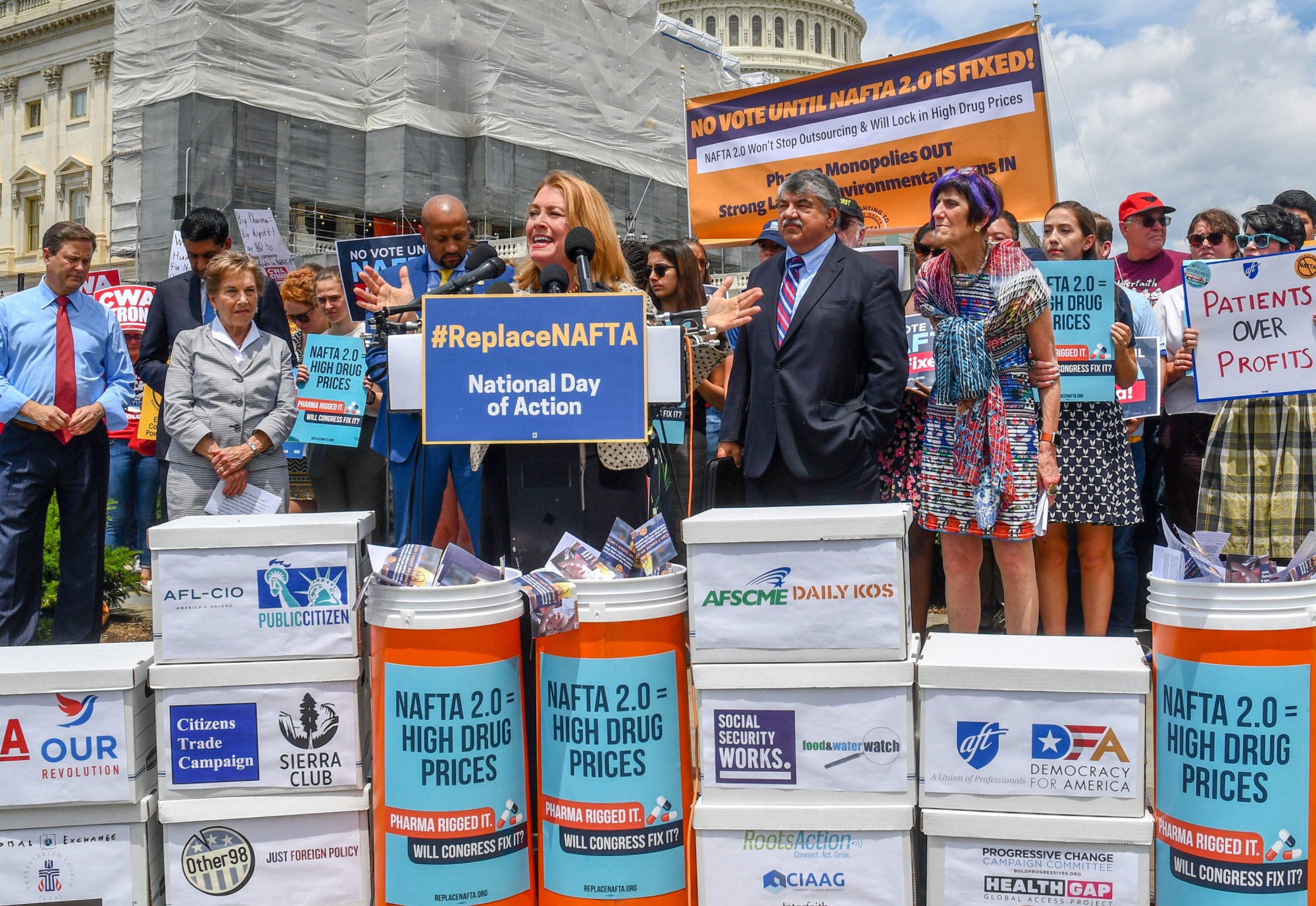Trump administration considers loosening drug protections in USMCA
All the versions of this article: [English] [français]
Fox Business | 3 December 2019
Trump administration considers loosening drug protections in USMCA
Intellectual property protection for a new class of medications could be dropped from a North American trade agreement to help the Trump administration win support for the pact among Congressional Democrats.
The protections in the United States-Mexico-Canada Agreement for biologics, drugs derived from organisms, could be reduced to five years from 10, according to unnamed sources cited by the Wall Street Journal. The move would be to win support among Democrats who have suggested the removal of the provision. The change would allow generic versions of brand-name biologic drugs to get to the markets faster.
Passing USMCA is a priority for the Trump administration, which promised to buoy the U.S. economy by improving a variety of international trade deals, including replacing the North American Free Trade Agreement, which is better known as NAFTA. Members of the administration have accused Speaker of the House Nancy Pelosi of slow-walking the deal. But last week, Pelosi suggested that House Democrats and U.S. Trade Representative Robert Lighthizer are coming closer to an agreement to bring it to the floor. However, she said there are still some kinks that need to be worked out.
"As I said earlier, though we are hoping to come near to conclusion on a US-Mexico-Canada trade agreement," Pelosi said in Madrid, the site of a UN climate conference, "we still have some issues that relate to enforcement because if you don’t have enforcement you just have a nice conversation and a list of nice things, but you do not have a fair deal for workers in any of the countries."
Reps. Jan Schakowsky, D-Ill., and Rosa DeLauro, D-Conn, said in June the provision protecting biologic drugs should be dropped, according to Politico.
“It doesn’t need to be in there,” Schakowsky said at the time. “That is the recommendation that we’re hopefully going to present to him in the next few days.”
Schakowsky declined to comment. DeLauro could not be immediately reached for comment.
Because the treaty would have the same effect as law, the 10-year provision would not be able to be altered by Congress with a typical bill. So a treaty could hamstring U.S. lawmakers if they ever want to reduce the length of time biologics are protected. The law protects drug companies for 12 years.
Mexican and Canadian governments would need to approve of any changes to the agreement. Mexico ratified the deal in June, while Canada appears on track to ratify the deal in its new Parliament.
The pharmaceutical industry says the provisions in USMCA, if enacted, won’t directly affect U.S. law or drug affordability for Americans, according to the Journal.






